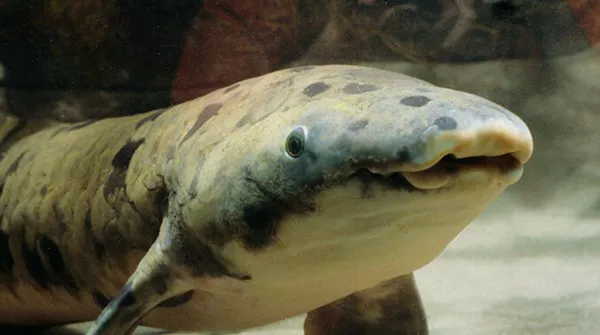Lungfish are a unique group of fish that are known for their ability to breathe air as well as underwater. While they may not be the first animal that comes to mind when thinking of dangerous aquatic creatures, some people may wonder whether lungfish are capable of biting humans or other animals. In this article, we will explore the question of whether lungfish bite and what you need to know about these fascinating animals.
Anatomy of Lungfish
Lungfish have a unique anatomy that sets them apart from other types of fish. They are named for their specialized respiratory system, which includes a pair of lungs that allow them to breathe air in addition to extracting oxygen from the water. In terms of their bite, lungfish have a relatively small and weak mouth compared to other types of fish. They have rows of small teeth that are used to crush and grind their food, which typically consists of snails, crustaceans, and other small aquatic creatures.
While lungfish do have teeth, they are generally not considered to be a threat to humans. In fact, most species of lungfish are quite docile and are not likely to attack or bite humans unless they feel threatened or cornered. It is important to remember, however, that all animals can be unpredictable, and it is never a good idea to handle lungfish or any other wild animal without proper training and precautions.
Do Lungfish Bite?
The short answer to the question of whether lungfish bite is yes, they can. While lungfish are not typically aggressive towards humans, they may bite if they feel threatened or if they mistake a person’s fingers for food. The bite of a lungfish can be quite powerful, thanks to the strength of their jaw muscles and the interlocking nature of their teeth.
It is important to note that lungfish are not typically considered to be a major threat to humans. They are generally reclusive animals that prefer to avoid interactions with people whenever possible. However, it is still possible to be bitten by a lungfish if you are not careful or if you do something to provoke them.
Factors that may influence lungfish behavior
While lungfish are generally not considered to be dangerous to humans, there are some factors that may influence their behavior and increase the likelihood of a bite. For example, lungfish that are kept in captivity may be more likely to bite if they are not provided with a suitable living environment or if they are not properly cared for. This can include factors such as insufficient space, poor water quality, and a lack of appropriate food and nutrition.
Another factor that may influence lungfish behavior is stress. Like all animals, lungfish can experience stress in response to a variety of factors, such as changes in their environment, the presence of other animals, or disturbances to their routine. In some cases, stress can cause lungfish to become agitated or defensive, which may increase the likelihood of a bite.
Preventing Lungfish Bites
If you are interested in working with lungfish or observing them in their natural habitats, it is important to take appropriate precautions to prevent bites. Here are some tips to keep in mind:
- Avoid provoking lungfish. If you are working with lungfish, be sure to approach them slowly and carefully to avoid startling them. Do not touch or handle them unless you are trained to do so, as this can increase the risk of being bitten.
- Wear protective gear. If you are working with lungfish in a laboratory or research setting, be sure to wear gloves and other protective gear to prevent bites.
- Educate yourself. Learn as much as you can about the behavior of lungfish and how to work with them safely. This can help you to avoid situations where you might be bitten.
- Seek medical attention if you are bitten. While lungfish bites are not typically life-threatening, they can cause significant injury and may become infected if not treated promptly. If you are bitten by a lungfish, seek medical attention right away.
In conclusion, lungfish are capable of biting humans and other animals, although they are not typically aggressive towards people. If you are interested in working with lungfish or observing them in their natural habitats, be sure to take appropriate precautions to prevent bites. With the right knowledge and precautions, you can safely enjoy the fascinating world of lungfish and learn more about these unique and interesting creatures.
Recommended reading: Is it Safe to Eat Lungfish?- What You Need to Know


























